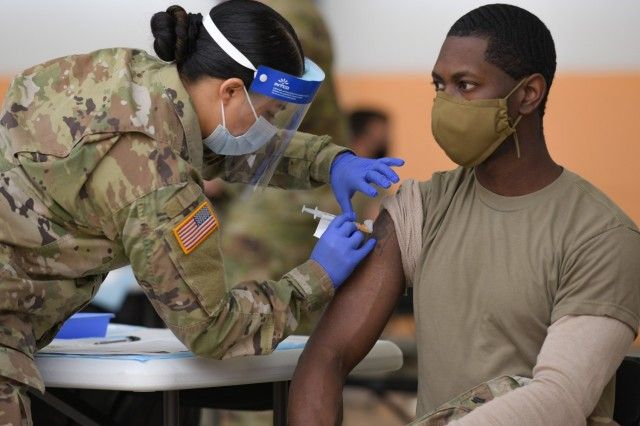The United States
Army will discharge soldiers who refuse to take the COVID-19 vaccine,
authorities announced Wednesday. Unvaccinated soldiers, who don’t have an
approved or pending exemption request, will be removed. Such soldiers will not
be eligible for involuntary separation pay and may even have to return
incentive pay or any unearned special pay.
Explaining the
rationale for the decision, Christine Wormuth, Secretary to the US Army, said, “Army
depends on Soldiers who are prepared to train, deploy, fight and win our nation’s
wars. Unvaccinated soldiers present risk to the force and jeopardize readiness.”
Nearly 96% of the
US Army has received at least one dose of the COVID-19 vaccine as of January
26. While 5,900 soldiers have received temporary exemptions, 3,350 soldiers
have simply refused to take the jab. The Army’s decision may preliminarily
impact these soldiers first.
Also Read | California bill could let kids over 12 get COVID dose without parent’s consent
Late last month,
the US Army said that six Regular Army leaders, including two battle
commanders, were removed from service by Army commanders for refusing the COVID
jab. Taking the COVID-19 vaccine was made mandatory by the Pentagon in August
last year.
At the time,
Defense Secretary Lloyd Austin said, “To defend this Nation, we need a health
and ready force,” and encouraged soldiers to get jabbed without waiting for the
mandate. The White House too had put its weight behind a vaccine mandate for
soldiers.
“Being vaccinated
will enable our service members to stay healthy, to protect their families, and
to ensure that our force is ready to operate anywhere in the world,” US
President Joe Biden had said in a statement.
Vaccine mandates have
been a contentious issue in the United States and other parts of the world.
Recently, massive protests broke out in Canada after unvaccinated lorry drivers
took over the streets against the vaccine mandate.
Austria, on Tuesday,
became the first nation to impose a vaccine mandate on everyone above the age
of 18. While the decision has faced-off with protests, the government maintains
that vaccination protects against severe disease and guards against future
lockdowns.







